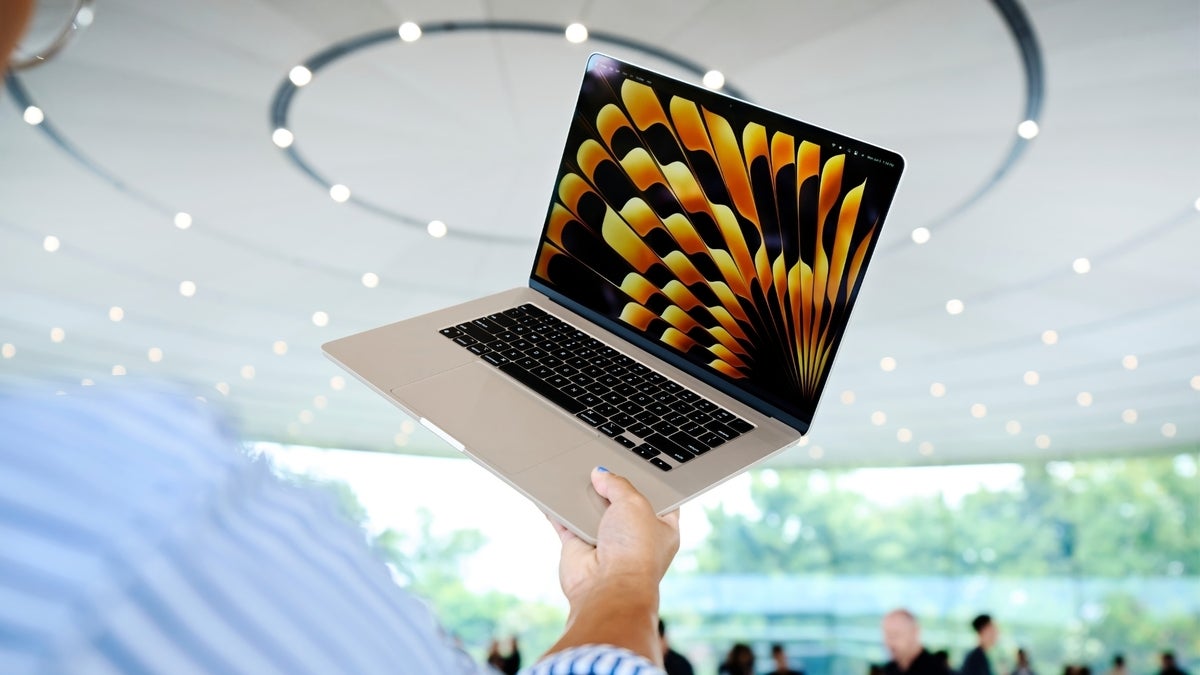Can you run your business on a 15-in. MacBook Air? I’ve used one for about a week, and I think most people can. It provides everything that’s good in the existing M2 MacBook Air, but with a bigger screen and an approachable price.
Out of the box
Out of the box you can expect the usual Apple “wow” factor. The 0.45-in. thin, 3.3-pound, Midnight 512GB model I tested looks great, though I have developed a somewhat obsessive habit of cleaning up finger-marks on the chassis. (This model sells for $1,499.)
The packaging is a story in itself. Apple continues working to reduce its environmental impact, which means it has largely abandoned plastic in packaging. Instead, Apple’s boxes now make liberal use of clever paper tabs, glue, and highly effective design ideas borrowed from Origami.
That’s important at scale, as in combination with the increased use of recycled components, lengthy battery life and low power requirements, companies purchasing large numbers of these devices gain an immediate benefit in terms of meeting environmental and CSR targets.
But those green(ish) credentials come at no real compromise.
Fast and power efficient
The computer inside the box is a Mac, so it runs macOS, integrates well with the wider Apple ecosystem, and runs Windows in emulation using third-party Parallels software. If you like, you can also run versions of Linux in VM mode on these machines.
The MacBook Air uses an M2 Apple Silicon processor. That’s the entry-level chip in the M2 range, but delivers plenty of horsepower. Geekbench tests show you’re getting more single-core performance than an M1 Max Mac Studio or a 16-inch M1 Pro MacBook Pro.
When it comes to multi-core performance, things change, but the M2 MacBook Air still delivers higher performance than the late 2019 2.7GHz Mac Pro or iMac Pro.
You get all this performance at low power requirements, which is good for electricity bills. Apple claims up to 18 hours of battery life – and that power is retained, too. I left the Air alone for a few days, and it was still ready to roll when I got back to it.
One more stat to put this into perspective: Apple’s 16-in. Intel Core i9 MacBook Pro was introduced in late 2019. That Mac blew me away with what it was capable of. On Geekbench, it generated multi-core performance of 6,341. The 15-in. MacBook Air does 9,593 —on a consumer Mac.
This is very much the beauty of Apple Silicon, which is empowering Apple to break the performance barrier on Macs, setting new standards with each iteration. Make no bones about it, you’re getting pro performance in a consumer device.
Some users might need more
There are some compromises. One salient consumer feature in the device is the 15.3-in. Liquid Retina display. Don’t get me wrong, it’s a great, large display, with P3 wide color and support for 1 billion colors. It gives you plenty of space to work in, is comfortable to look at, and colors are crisp and rewarding.
But this is not —…
2023-07-07 09:00:06
Source from www.computerworld.com rnrn



















